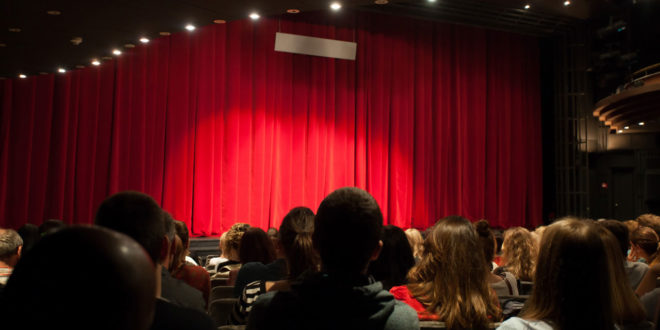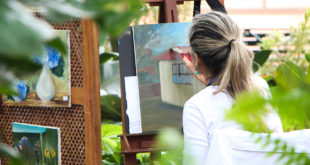The actor playing Charles Wallace, Meg’s youngest brother, and I grew especially close. As all the lines were learned and motions were memorized, we could have more fun in the rehearsals. “Charles Wallace” and I had our traditions—a high five at this point, a hug during this scene, an inside joke that made only us laugh.
My Favorite Part
My favorite part of working with him came about because of a scene at the beginning. Meg is not a well-liked character at first. To establish this, a scene was written where all the other characters start to hurl insults at her. During the scene, I would run offstage while the actors yelled. Due to the nature of the play, however, the insults weren’t written lines. The cast improvised them. Because I related to 14-year-old Meg so much, it was hard sometimes to remember that the insults were not, in fact, directed at me but a character. “Charles Wallace,” though, added something of his own. As insults were hurled, he improvised, “I love you, Meg! You’re the greatest, Meg! You’re the best big sister, Meg!”
We were halfway through rehearsals, and everything was going well. I woke up every day excited to work on the play. But then, one day, as I strolled down the hall to the theatre for the rehearsal, I saw our Charles Wallace huddled with the director and stage manager in the hallway. Confused, I went inside and felt a somber mood amongst the cast. It was the opposite of the jovial, lightheartedness that had filled the space up until then. A few minutes later, the director, stage manager, and actor walked back inside, and the director told us that the actor would be leaving. It felt like everyone in the room froze. No one wanted to rehearse that day. Rehearsal ended early, but not before the director explained that a replacement actor would be joining us the next day.
Change of Actors
Conveniently, I had already met the new actor about two months earlier at a theatre conference. He was talented and funny and nice enough, but he was different. I didn’t want different. The blocking changed. He said lines in a new way. The high fives, and hugs, and inside jokes were gone. I wanted my brother back. I left that first rehearsal feeling unsure about how the rest of it would go. Here I was, doing this wonderful show, playing a character I loved, and I thought it would be horrible from here on out. I’d had it perfect for a while, I remember thinking. And now it was all over. I had trouble believing that things would be ok.
Slowly, I was able to appreciate what the new actor brought to the show. The jovial, lightheartedness that had disappeared slowly returned. In a play that had been rather somber at first, he brought the joy. We developed our own inside jokes, and I laughed in rehearsals even more than I had before. Our new Charles Wallace reminded me that while it may be hard to open myself up to new people and to adjust to change, it is somehow always worth it in the end. He reminded me that believing things will be ok is hard, but vulnerability can make it easier.
The Darkness of Change
The hard adjustment and difficult rehearsals eventually subsided, and I ended that play with extra inside jokes, extra joy, and a new friend. It’s easy to be thankful when I think about it that way. As Madeleine L’Engle once wrote, “ It is when things go wrong, when good things do not happen when our prayers seem to have been lost, that God is most present… We are closest to God in the darkness, stumbling along blindly.” If I hadn’t experienced the darkness of change, I would not have learned how to see God in the story I was telling or in the people I was telling the story with. He was there the whole time, using those around to gently remind me that vulnerability is bravery and that it is in the darkness of change that we can find a brighter light.
Claira Eastwood writes from the Pacific Northwest.
If you liked this, you might also like Change Is Possible | 10 Ways to Cope With Big Changes
© 2002 - 2025, AnswersForMe.org. All rights reserved. Click here for content usage information. Answers for Me Support & encouragement for every-day life
Answers for Me Support & encouragement for every-day life



